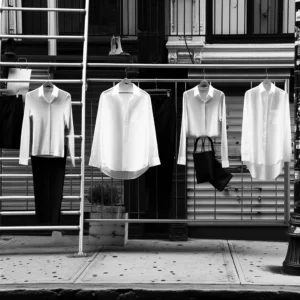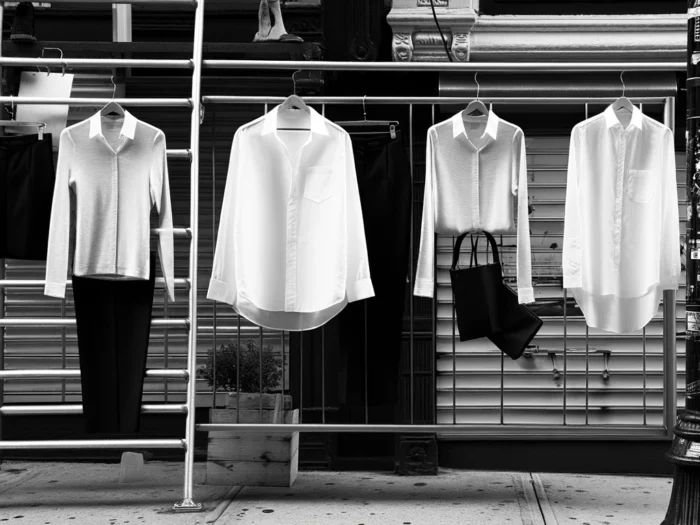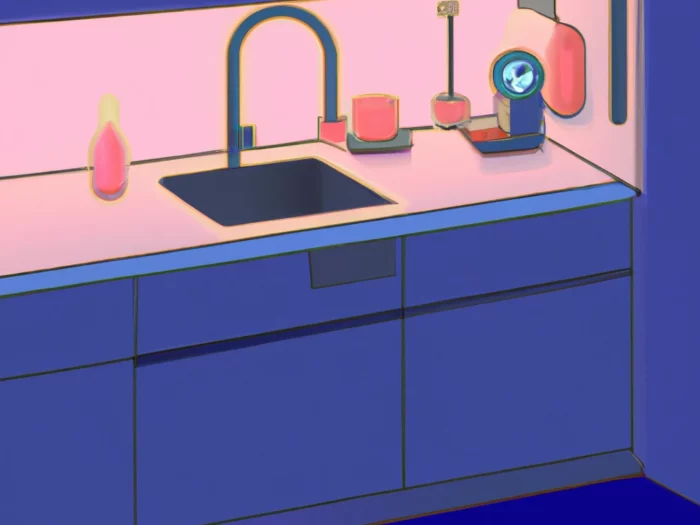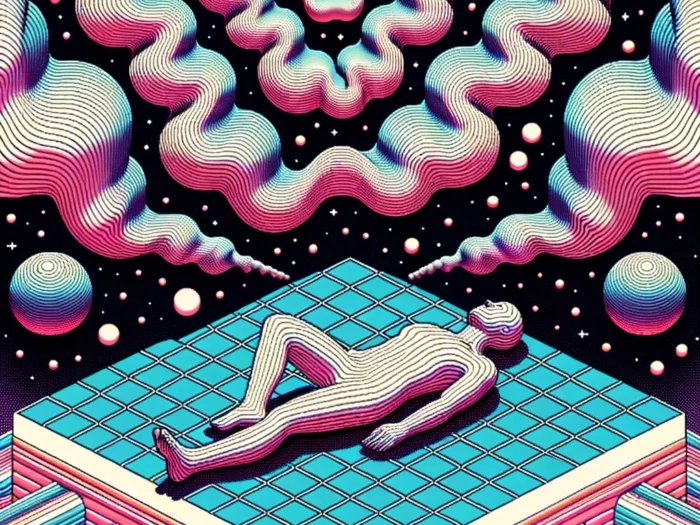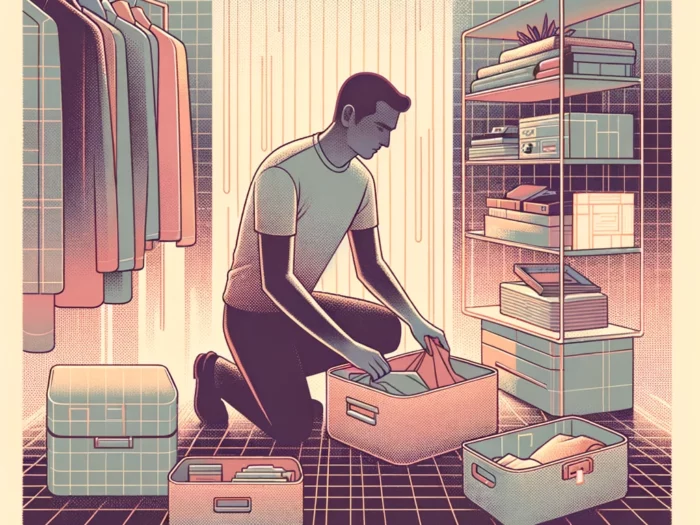Like many of you, I don’t really like clutter. As a kid I liked to keep my room fairly neat. But when I was a teenager, I didn’t really care too much when it got messy. Something changed. I bought into a big lie about clutter.
This morning I was complaining about something sticky I found on my bedroom floor that shouldn’t have been there. But is it really about clutter and mess? Or is it me? Perhaps it’s my own intolerance that is the problem?
Yep. I’d venture to guess it’s more my problem than anything else. This idea that clutter is stress-producing and therefore you should become a minimalist is a cop out. Its a lie! Rather, clutter can cause stress for certain people, but not everybody.
It’s Not the Clutter, It’s How We React to the Clutter
For instance, I have a friend, Larry. He lives in absolute clutter. He’s not quite a hoarder, but his place is a disaster, crap everywhere. Yet he knows exactly where everything is and has no qualms about stepping over something that’s in his way. Larry is as happy as anyone I’ve ever met. I’ve rarely, if ever, seen Larry stressed out. Clutter doesn’t seem to phase Larry at all.
Another friend, Todd, is a collector. He has a record and a guitar collection worth hundreds of thousands of dollars. He goes to Goodwill and antique shops regularly and buys more stuff. He has a handful of old motorcycles and cars. He has clutter. The way he looks at it is that he’s keeping this old shit from getting thrown out and becoming part of a landfill. There is some truth there. Oh, and I’ve rarely seen Todd get stressed out.
Another example: My brother recently lost his wife to cancer. For the last five years of her life she didn’t have the energy to care for the home. My brother was busy working and taking care of her. The house was a mess. My brother didn’t stress out about it. He controlled his own emotions instead. He did what he needed to do and let the house stay messy. After his wife died, he cleaned the house some, but it’s still not a spotless image of perfection. He doesn’t care.
Clutter makes me anxious, I admit that. It makes many people anxious. But there are also people who can take it or leave it. And there are people who can live in absolute squalor. Perhaps it’s not the clutter that’s really the problem, but rather our own intolerance for disorder.
God Created Craploads of Clutter
Think about nature. If some disorder and clutter is not natural, then why did God make mountains and forests? In the natural world clutter abounds. It’s everywhere. The woods, one of the places minimalists take happy pictures of themselves living blissful and perfect lives, is overflowing with clutter. But the deer and the coyote and the bear don’t seem too stressed out about it. In fact, the clutter serves purpose.
I live in the desert. And although deserts have less clutter than woods, there are still bushes and weeds and rocks everywhere. It’s natural. So why do humans have this need to control our environment? Perhaps that is natural, too. We like order. It’s what we’ve been taught is right: to have things in order. But the fact that different people have different tolerance levels for clutter suggests that it’s less about the clutter and more about us.
Perhaps it’s those of us that have a greater need for CONTROL that can’t tolerate clutter. And I hate to tell you, but holding onto a need for control will likely cause twice the stress as the clutter itself. Why? Because control is illusive. We think we can control our environment, but truth be told, nearly everything in this life is out of our control. I didn’t put the sticky stuff on my floor this morning. I don’t eat hard candy. Someone else was in my room while I was gone. Should I put a padlock on my door?
Minimalism Plays on Our Intolerance
If the problem lies more within ourselves rather than the clutter, then perhaps those who claim they can help you to live a perfect clutter-free life are playing on our intolerance? Or perhaps they just belong to the same personality type of people who have a greater need to make a vain attempt to control everything around them. And if we tend to want to control our environment, we might want to control events and people, too. Just saying.
Perhaps it’s not the clutter we should be so worried about, but rather ourselves. Why do we feel the need to be in absolute control of our environment? And how can we learn to relinquish some of that control? If we let go of this need for control we might just discover more peace and happiness than minimalism could ever offer.
Before I stop posting at Hip Diggs, I’ll share a few photos of my new apartment environment. It’s not cluttered. It’s not minimalist. It’s just a basic place for my daughter and I to live and try to enjoy life as much as we can. The one thing that still attracts me to simple living, is less the need for control, and more the idea that with less stuff, I’ll have less that I have to control. But my experience is that even this idea can be misleading. I just sold my house and downsized a crapton. Guess what? Life is still full or surprises and clutter. It’s fucking life. Deal with it!
The Lie You’ve Been Told About Clutter
If we repeat something enough we will believe it, even if it’s not true. It’s called conditioning. So when we are repeatedly told that clutter creates chaos and anxiety we begin to believe that, even if we were once more tolerant of clutter.
When I was younger, in my teens and early 20s, a little clutter didn’t phase me at all. As I got older, I’ve done the responsible-adult thing and kept my home neat. It wasn’t until I started following minimalist writers that I felt the need to purge and live with less and less stuff. I was attracted to the minimalist porn I kept seeing in the photos on minimalist blogs. So sexy! I like that aesthetic. But to aspire to live that way may have caused me more stress than the clutter itself. Things will never be exactly right. Ever! That’s life.
Think about it. Unless you’re a single person, or in a relationship with someone who has the exact same need to control their environment as you do, your attempt to live clutter free is in vain. So perhaps instead of buying into the lie that all clutter is bad, we should look inside of ourselves?
My ex-wife had a severe case of OCD. When she went to inpatient therapy she had to undergo treatment that taught her to deal with clutter. She had to touch the things that caused her fear. I’m not saying that all minimalists have OCD, but I would guess that many of us do have minor symptoms of that disorder. Perhaps, demanding that everything be in order is just another form of disorder?





